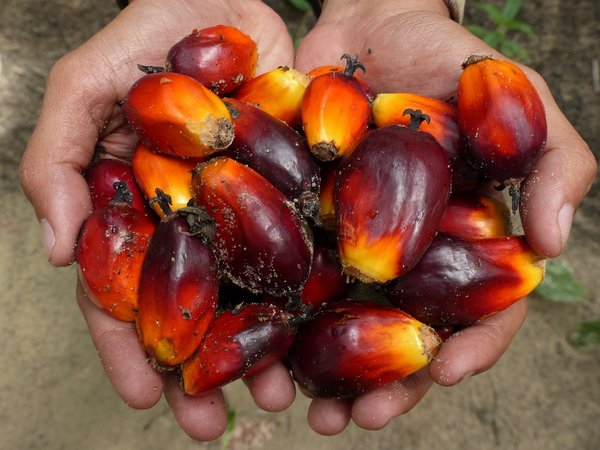- Share this article
- Subscribe to our newsletter
Less fertilizer and no herbicide but same yield?
Environmentally friendlier palm oil production could be achieved with less fertiliser and no herbicide, while nevertheless maintaining profits, researchers from University of Göttingen, Germany, announced in November 2019. These are the preliminary results of the first two years of a large-scale oil palm management experiment. The research was published in Frontiers in Forests and Global Change.
In 2016, the German-Indonesian Collaborative Research Centre “Ecological and Socioeconomic Functions of Tropical Lowland Rainforest Transformation Systems (EFForTS)” set up an experiment in an oil palm company estate in Jambi province, Sumatra, in collaboration with the Indonesian national company PTPN6.
Fertiliser input was set to one of two levels: either low, compensating for the nutrients that are removed by the harvest; or high, corresponding to the industry standard for fertiliser-usage, which is roughly twice as high. Weed control was performed either mechanically or with common chemical herbicides such as glyphosate. Research groups studied the oil palms, the soil, and the biodiversity, measuring variables such as microbial biomass, bird activity, soil base saturation, nitrogen content, and oil palm leaf area index.
Two years after implementing these treatment, the researches were still not able to detect a reduction in yield. In fact, profits were higher because of reduced fertiliser costs. The impact on soil-related functions and nutrients was either negligible or there was a positive effect. Some biodiversity measures responded positively to mechanical weed removal, because there was increased plant cover. and this bolstered animal biodiversity.
EFForTS plans to continue monitoring the experimental plots for four more years. Oil palm can take years to react, the researchers point out, so it is crucial to continue the experiment and monitor whether this positive trend will continue.
Future research will synthesise the long-term results of the experiment, take into account greenhouse gas emissions, and perform economic-ecological modelling to deliver clear recommendations for stakeholders.
(University of Göttingen/ile)
More information:
Original publication: Kevin Darras et al. Reducing fertilizer and avoiding herbicides in oil palm plantations – ecological and economic valuations (2019). Frontiers in Forests and Global Change. DoI: 10.3389/ffgc.2019.00065: https://www.frontiersin.org/articles/10.3389/ffgc.2019.00065/full
Website of the University of Göttingen:
http://www.uni-goettingen.de/en/3240.html?id=5683





Add a comment
Be the First to Comment